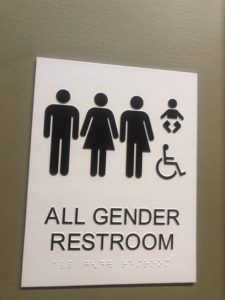The Washington Post Makes Sense… Twice!
The Washington Post, which competes neck and neck with the NYT for Financially Dumbest Major Newspaper in the US, recently published two opinion pieces that actually made sense.
The first was about taxes. In particular, Sen. Elizabeth Warren’s renewed call for a wealth tax to, as she put it, “make the ultra-rich finally pay their fair share.”
This was in response to a report from ProPublica, the do-not-think tank, that stated that the 25 wealthiest people in the US “pay income taxes that are only a tiny fraction of the hundreds of millions, if not billions, of dollars by which their fortunes grow each year.”
Here’s what the Post said:
ProPublica muddied a basic distinction, which, properly understood, actually fortifies the case against a wealth tax. The story likened on-paper asset price appreciation with actual cash income, then lamented that the two aren’t taxed at the same rate.
However, the income tax system never required people to pay taxes on the appreciation of their assets, until they sold them and “realized” capital gains. For good reason: ProPublica’s logic implies that, when the stock market goes down, Elon Musk, whose billions are tied up in shares of Tesla, should get a tax cut.
Sen. Warren is calling for a 2% annual tax on net wealth above $50 million; 3% above $1 billion. But that could mean that such people would face large tax bills even when they had little or negative net income, forcing them to sell assets to pay their taxes.
From the Post:
That could set off a downward spiral in the markets, affecting people of more modest means. Though prices of marketable securities are easy to track, the huge chunks of private wealth tied up in real estate, rare art, and closely held businesses are more difficult – sometimes impossible – to assess consistently.
The Post also pointed out that in 1995 11 European countries levied such wealth taxes. But they yielded only modest additional revenue and lots of wasted money on audits and red tape. Most of those taxes have been repealed.
The second Post opinion piece that made sense was about job qualifications. The proposition: The majority of Americans lack a college degree. Why do so many employers require one?
Okay, on the face of it, that sounds like a really dumb question. And I cannot deny that the logic behind it is about as dumb as it gets.
The paper’s editorial team laid out a set of facts that I found astonishing: 80% of Latinos, almost 70% of African-Americans, and more than 70% of rural men and women in the US workforce do not have a college degree.
I didn’t realize the percentages were that high. My reaction was, “Wow! No wonder these three groups are always at the bottom of every social and economic indicator!”
But that is not the way the editors of The Washington Post saw it. They saw it as another kind of systemic oppression. This is “degree discrimination,” they argued. “It’s a bias that’s blinding companies to talent they need and reinforcing existing economic inequalities.”
College-degree discrimination has become so widespread that many take it for granted. Almost 75% of new jobs from 2007 to 2016 were roles in which most employers typically “require” bachelor’s degrees – but fewer than 4 in 10 American workers have that credential. Going to war against arithmetic is a bad idea, and our post-pandemic skilled-worker shortage is a wake-up call.
The logic here is fundamentally flawed:
* Inequality is bad.
* Discrimination results in inequality.
* Therefore, all inequality is caused by discrimination.
This is a classic syllogistic error. But we can pick that up another day.
The Post went on to make the following distinction:
Requiring a medical degree to treat patients or a civil engineering degree to design a bridge is common sense. By contrast, requiring a generic college degree to be considered for jobs such as office manager, sales representative, digital marketer, or data-center technician may be common, but it makes no sense.
I disagree with the first sentence. But, again, let’s not argue that here. The second sentence makes complete sense.
I’ve been owning and running businesses for more than 50 years. During that time, I’ve had, directly or indirectly, thousands of employees. I’ve personally hired, fired, and managed hundreds. And for the past 20 years, I’ve been writing about business and entrepreneurship, which has obliged me to think about what makes for a good or bad employee.
And one thing I have come to believe: A college degree doesn’t mean shit.
If it means anything, it means nothing more than, “I hung around a college campus for four or five years at one time.”
It doesn’t mean competence. It doesn’t mean knowledge. It doesn’t mean anything that is truly useful to an employer. Not intelligence, nor curiosity, nor tenacity, nor the capacity for hard work.
What matters in an employee can only be discovered through purposeful interactions with job candidates. Conversations, correspondence, testing, and try-outs.
I have lots more to say on this subject (including why I think a college degree shouldn’t be required for medical or engineering jobs either), but I’ll get to that another time.
Most of the companies in which I’m involved these days still require a college degree for most jobs. But the best ones – the ones that are growing the fastest – don’t care about credentials. They look for talent, energy, ambition, and skill.

